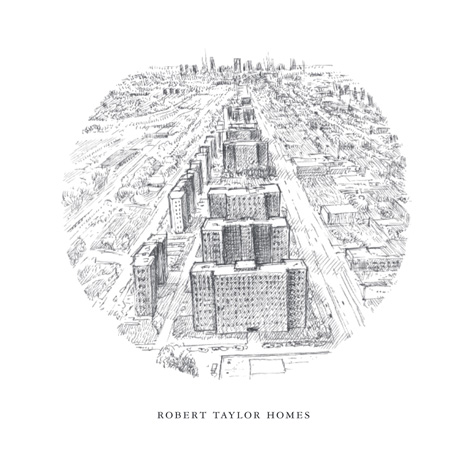“I come to you as a student, not as an expert or a scholar,” Audrey Petty declared, opening a panel discussion of her new book, “High Rise Stories.” The book tells the stories of several residents of Chicago’s now-demolished high-rise housing projects. In both her book and her talk, Petty, an associate professor of creative writing at the University of Illinois, Urbana-Champaign, sought to portray the impact the Chicago Housing Authority’s Plan For Transformation has had on real people. For many of those gathered at the Bronzeville Visitor Information Center last Friday night, this immensely controversial program, which has brought about the demolition of high-rise projects and the relocation—or displacement—of thousands of residents, is a deeply personal source of anger and pain.
Joining Petty was a panel of five men and women selected for their varying expertise and experience with Chicago’s public housing communities. This panel included Todd Palmer, curator and interim director of the National Public Housing Museum, and Rashayla Marie Brown, director of multicultural affairs at the School of the Art Institute of Chicago.
Despite the panelists’ qualifications, the audience dominated the discussion. After Petty read a selection from “High Rise Stories,” several of the audience members were quick to jump in with their own takes on the problems and solutions for African-Americans in Chicago’s public housing. A good-natured reminder from the moderator, long-time journalist Monroe Anderson, that,“we’ve got a panel that wants to speak,” was met with laughs, but was not able to shift focus back onto the five panelists.
The nature of the comments was varied, but participation came overwhelmingly from older men. These included former gang leaders, former employees of the Chicago Police Department, Chicago Public Schools, and CHA, and former residents of public housing communities. Each prefaced his comments by detailing his own expertise and experience, and each cited a deliberate effort on the part of police and politicians to dismantle the black community and the black man in particular. At one point, Brown cut in to remind everyone of the struggles of single mothers, and the problems involved with regarding men as the necessary “saviors of any community.” This was met with appreciative nods from some, but with dismissiveness from Anderson and others.
Each audience member who spoke presented a story that he or she felt was not being heard. It was clear that Petty was sympathetic to her audience’s unhealed wounds and long-stifled voices. She closed the discussion by affirming the need to remember public housing in all its complexity, for its networks of support and togetherness as well as its violence and its disillusionment. Tying together all that had been said, she remarked that while one should not neglect to work for a better future for the community, one must also never lose “the history we can give our children.”

